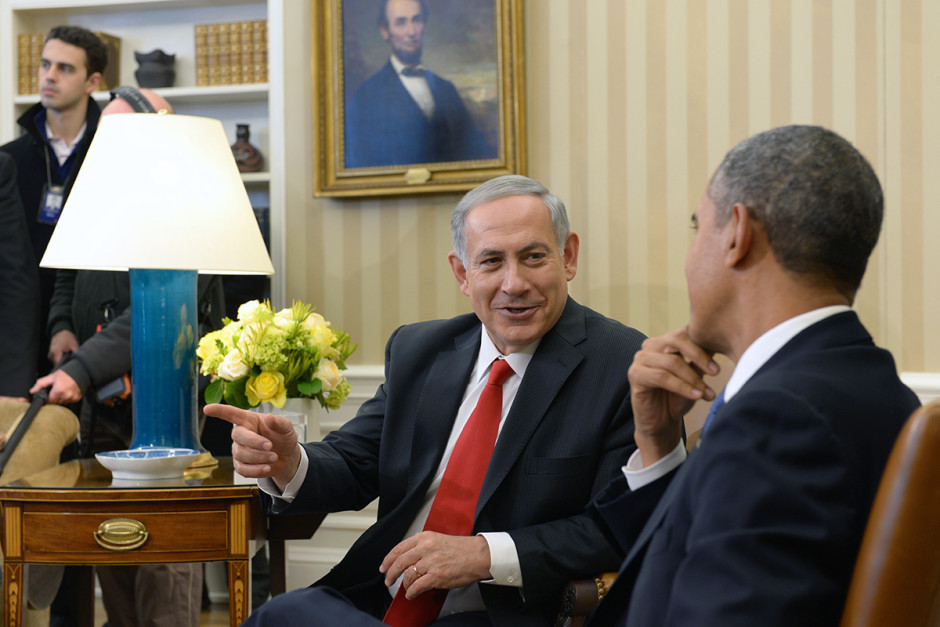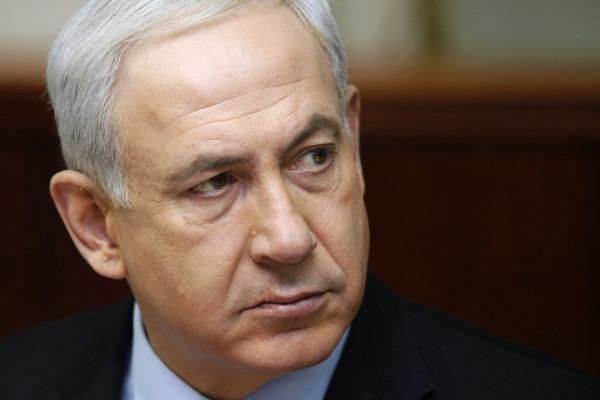
Michael Kirk’s Frontline documentary on the dysfunctional relationship between U.S. President Barack Hussein Obama and Israeli Prime Minister Benjamin Netanyahu, Netanyahu at War, will be aired by the PBS network on January 5 at 9 p.m. (check local listings).
It’s a timely, hard-hitting and important film about two leaders whose personal philosophies and world views diverge to such an extent that they’re barely on speaking terms at times.
Netanyahu and Obama have major differences over two broad issues — the intrinsic value of the Iran nuclear accord and the best route to resolving Israel’s seething conflict with the Palestinians Arabs. These are the disagreements that Netanyahu at War focuses on at length.
Its starting point is the highly controversial speech Netanyahu delivered to the U.S. Congress last March in a last-ditch attempt to block the nuclear agreement the United States, five other world powers and Iran would sign only four months later in Vienna.
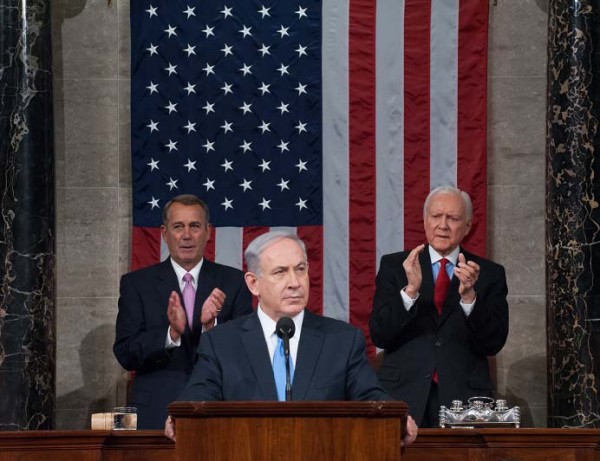
The film, nearly two hours in length, is greatly enhanced by interviews with Israeli, American and Palestinian officials and observers. The Israeli interviewees run the gamut from Dore Gold, the director-general of the Foreign Ministry, to Eyal Arad, who was once Netanyahu’s advisor. The Americans include Dennis Ross, the former special envoy to the Middle East, and Martin Indyk, who was twice ambassador to Israel. The Palestinian vision is articulated by Saeb Erekat, the former chief negotiator of the Palestinian Authority, and Diana Buttu, a lawyer who was a participant in peace talks with Israel.
The critical, even disparaging, tone that the film adopts toward Netanyahu is set in the first few minutes. Obama’s former chief of staff, David Axelrod, accuses him of having tried to sabotage one of his boss’ key foreign policy objectives, the Iran nuclear agreement, which the Israeli government considered a “bad deal” that would compromise its security.
Obama was furious with Netanyahu’s effrontery, but their clash over Iran was, as one commentator aptly observes, “a train wreck waiting to happen.”
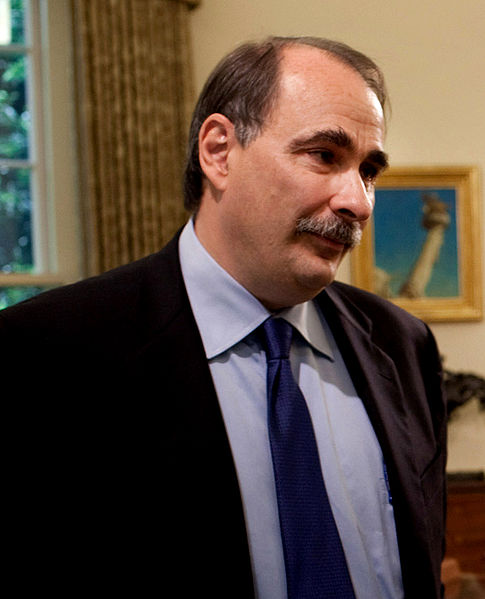
At this juncture, the film goes back to 1972, when Netanyahu — a member of an elite commando unit — participated in a Ben-Gurion Airport raid to free passengers on a Sabena Airlines plane which had been hijacked by Palestinians. Due to friendly fire during the operation, he sustained a minor hand injury, but for Netanyahau, this incident was a rite of passage.
Netanyahu was heavily influenced by his father, Ben Zion, a right-wing historian from the Revisionist school of Zionism who temporarily left Israel in indignation after the Hebrew University declined to grant him tenure. He and his family settled in the United States, where the young Netanyahu acquired fluency in idiomatic English. Ben Zion believed that the world was hostile to Jews, and this was the view Netanyahu and his two brothers inherited from their father.
During the Six Day War — a momentous event in Israel’s history — Netanyahu returned to Israel to dig trenches. In 1976, he mourned the death of his older brother, Yoni, an army officer who was killed during the legendary Entebbe raid in Uganda. After Yoni’s passing, Netanyahu presented himself as an expert on terrorism and a vocal opponent of Palestinian statehood.
Thanks to family connections, he landed a position as a spokesman in Israel’s embassy in Washington, D.C. David Remnick, the editor of The New Yorker, says he had a gift for sound bites. By the age of 34, he was Israel’s ambassador to the United Nations, portraying Israel as a bastion Western values and civilization.
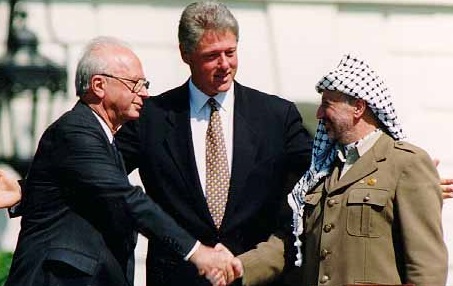
For Netanyahu, the Oslo peace process was a bitter pill to swallow, a betrayal that would imperil Israel. He became the face of Israeli opposition to Oslo, appearing at rallies where the prime minister, Yitzhak Rabin, was roundly denounced and compared to a Nazi. To his discredit, he did not try to calm passions. Leah Rabin would accuse Netanyahu of contributing to the climate of incitement that climaxed with her husband’s assassination in November 1995.
Rabin’s successor, Shimon Peres, the ex-foreign minister, called a snap election and seemed poised to win by a handy margin. But a series of suicide bombings launched by Hamas hardened Israeli public opinion and catapulted Netanyahu, the Likud Party leader, to victory by the narrowest of margins.
Israelis had lost faith in peace with the Palestinians.
In his first meeting with the U.S. president, Bill Clinton — Rabin’s dear friend and an ardent advocate of Arab-Israeli reconciliation — Netanyahu expressed opposition to Oslo. Sandy Berger, Clinton’s national security adviser, claims Netanyahu behaved arrogantly, as if Israel was a superpower and the United States was its supplicant.
Chemi Shalev, an Israeli journalist, describes Netanyahu as a difficult and stubborn negotiator who “slow walked” talks with the Palestinians. “His maneuvers were maddening,” he says. In probable deference to his hawkish father, Netanyahu waited six months before meeting and shaking hands with Yasser Arafat, the president of the newly-formed Palestinian Authority.
Under pressure from the United States, Netanyahu made a concession in the form of an Israeli withdrawal from much of the West Bank town of Hebron. In doing so, he alienated many of his hawkish supporters. As a result, he was soundly defeated by Ehud Barak of the Labor Party in the 1999 election and consigned to political exile. In a stunning comeback, he resurrected his career, rebuilding his base and playing an integral role in Israel’s lurch to the right.
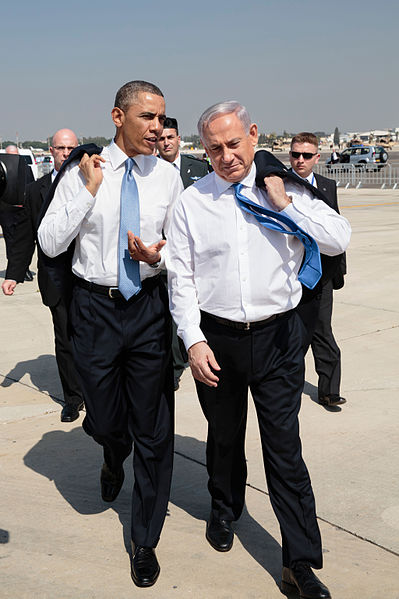
In 2008, he met Obama — a presidential contender — in Jerusalem. Netanyahu, a conservative, regarded Obama, a liberal, as a “pretty alien creature.”
An optimist with an idealized conception of Israel, Obama saw no reason why Israel’s perennial dispute with the Palestinians could not be resolved by peaceful means. Netanyahu hewed to a much darker view of the possibility of reaching an accommodation with the Palestinians.
Netanyahu, who was reelected to office shortly after Obama’s inauguration in 2009, visited the White House in May of that year. He was shocked and disappointed by Obama’s insistence on an Israeli settlement construction freeze in the West Bank. Netanyahu was now convinced that Israel was at war with the Obama administration.
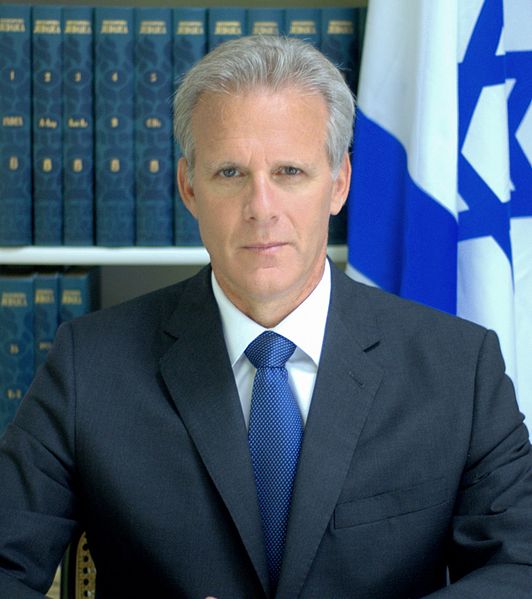
Michael Oren, Israel’s ambassador to Washington from 2009 to 2013, explains that Obama’s decision to omit Israel from his itinerary on his first visit to the Middle East was widely seen as an insult. George Mitchell, Obama’s special envoy to the region, concedes it was a tactical mistake. Obama thereby lost the trust of many Israelis. His unpopularity in Israel bothered him because a disproportionate number of his backers and friends in the United States were Jewish.
The dawn of the so-called Arab Spring in the Middle East widened the gap between Obama and Netanyahu. Obama welcomed the rebellions, but Netanyahu was concerned that Muslim extremists would exploit them for their own ends. Netanyahu was particularly dismayed when Obama abandoned Egypt’s president, Hosni Mubarak, an old U.S. ally.
Further tensions crept into Netanyahu’s fraying relationship with Obama following the latter’s demand that peace talks should be based on Israel’s withdrawal to the pre-1967 border. “It’s not going to happen,” Netanyahu declared as a glowering Obama sat next to him at the White House. “We cannot go back to the 1967 lines.” With this comment, Netanyahu effectively gave up on Obama as a leader he could trust.
Nonetheless, Israel’s military and intelligence ties with the United States remain at an all-time high level, a point the films fails to mention.
The Iranian question has also posed big problems for Netanyahu and Obama.
Perceiving Iran as Israel’s most formidable enemy, Netanyahu was absolutely certain that a nuclear-armed Iran would ultimately deploy its atomic arsenal against Israel. Obama, on the other hand, argued that diplomacy was preferable to war and that a global agreement with Iran would safeguard Israel’s vital interests.
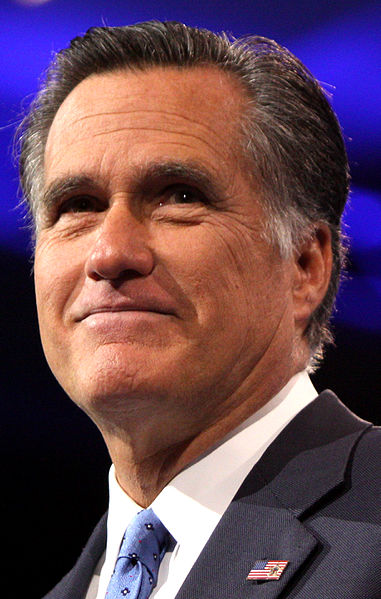
Disregarding Obama’s rosy assessment, Israel, in 2012, geared up to bomb Iran’s nuclear facilities. In preparation for an attack, Netanyahu took his case to the American public and embraced Mitt Romney, Obama’s Republican Party opponent in the forthcoming presidential election. Some American officials were upset by Netanyahu’s brazen interference in American electoral politics. By Indyk’s estimation, Netanyahu openly worked with Romney to unseat Obama.
When Netanyahu discovered that the United States had engaged Iran in secret talks to jump start negotiations on a nuclear agreement, he was beside himself with anger. He poured out his rage and frustration at U.S. Secretary of State John Kerry, raising his voice and banging his fists on a table.
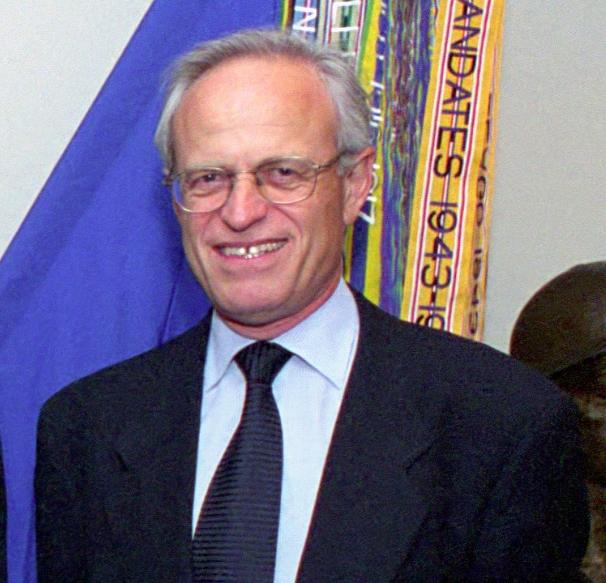
Having decided he could not win over Obama on this pivotal issue, he accepted an invitation from the Republican Speaker of the House of Representatives to address a joint session of the U.S. Congress without so much as bothering to inform the president. The White House fumed, but Netanyahu was undeterred by the prospect of further alienating Obama.
No “rational” Israeli prime minister would have dared to confront a sitting American president so blatantly, notes Indyk. But like a bull in a china shop, Netanyahu rushed forward in defiance of common sense, leaving another dent in Israel’s alliance with the United States.
Netanyahu at War premieres on PBS and online:
Tuesday, January 5, 2016, at 9 p.m. ET / 8 p.m. CT
http://pbs.org/frontline/netanyahu-at-war
www.facebook.com/frontline | Twitter: @frontlinepbs
Instagram: @frontlinepbs | YouTube: youtube.com/frontline
Tumblr: frontlinepbs.tumblr.com
